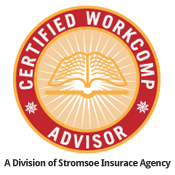Fighting Workers’ Compensation Audit Overcharges
Fighting Workers’ Compensation Audit Overcharges
Lack of Attention
A large majority of workers comp policies renew on January 1st. We hope these tips help you as an auditor will be contacting you soon if they haven’t yet.
Workers’ Compensation costs are a major expense item for most businesses today. Although most businesses focus on claims handling and loss prevention to reduce costs for this mandated coverage, there is very little available about the premium audit function.
Since your final Workers’ Compensation cost is determined at policy expiration with a review of your payroll records, it is essential you’re prepared for the final audit and that the audit be conducted properly. Prepare properly and most likely you will legally prevent the insurance company from overcharging you.
When your insurance policy first goes into effect, your premium is based on assigned classifications, estimated payrolls (referred to as remuneration) and an experience modification factor. At the policy’s expiration, the insurance company conducts a payroll audit and converts estimated payrolls into actual payrolls and assigns those payrolls to a classification.
When You Don’t Make the Rules, It’s Hard to Win the Game
Your insurance company designed the audit process so that when mistakes are made, (and mistakes are common) you will automatically be overcharged.
Our goal is to assist with a step-by-step process to guarantee you will never be overcharged on your Workers’ Compensation premium audit.
A Few Words About the Auditor
Premium Auditors, like all insurance company personnel, are driven by two opposing goals. The first is to maximize your premium. Some examples of maximizing premiums include:
- Assigning payrolls to highest rated classifications.
- Charging for commissions without deducting expenses
- Charging for subcontractors who are separately insured
- Overlooking deductions such as overtime
- Not informing you of how you should keep your record to minimize your costs
Running counter to the Auditor’s efforts to maximize your costs is the desire to push work across their desks as quickly, (and, in more than a few cases, as effortlessly) as possible. At most insurance companies, when an auditor receives your file, the clock starts running.
Typically, insurance companies require 70 to 80% of audits to be completed within 30 days of assignment. Those not completed within this time frame are labeled as “delinquent.” An auditor’s performance is measured as much by “delinquent list” as the quality of his audits.
Knowing the time constraints under which the auditor works can be helpful. By using our CorrectComp system, employers have found that efforts to make the auditor’s job easier can be rewarded by more favorable audits.
How Should You Prepare for an Audit
First, create your own audit package. When you compile the information needed and then present it in a format the auditor is familiar with, you will:
- Simplify the auditor’s job
- Reduce probing questions
- Know beforehand what to expect
- Control the data the auditor observes
- Help manage the ultimate cost of your workers’ compensation insurance
It is important to remember that the more detail you provide to support the audit, the better. Detail not only makes data more reliable, it makes the auditor look better in the eyes of his or her supervisor. Many auditors will even accept a well-documented audit as their own.
Our job is to help you prepare the Mistake-Free No Overcharge premium audit.
Any questions, thoughts or comments, please contact us, we are here to help you:
Phone: 877-994-6787
Text: 951-482-8144
Email: [email protected]
The CorrectComp system is a division of
Stromsoe Insurance Agency
